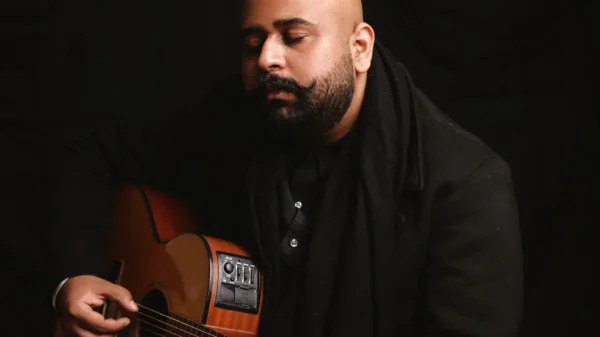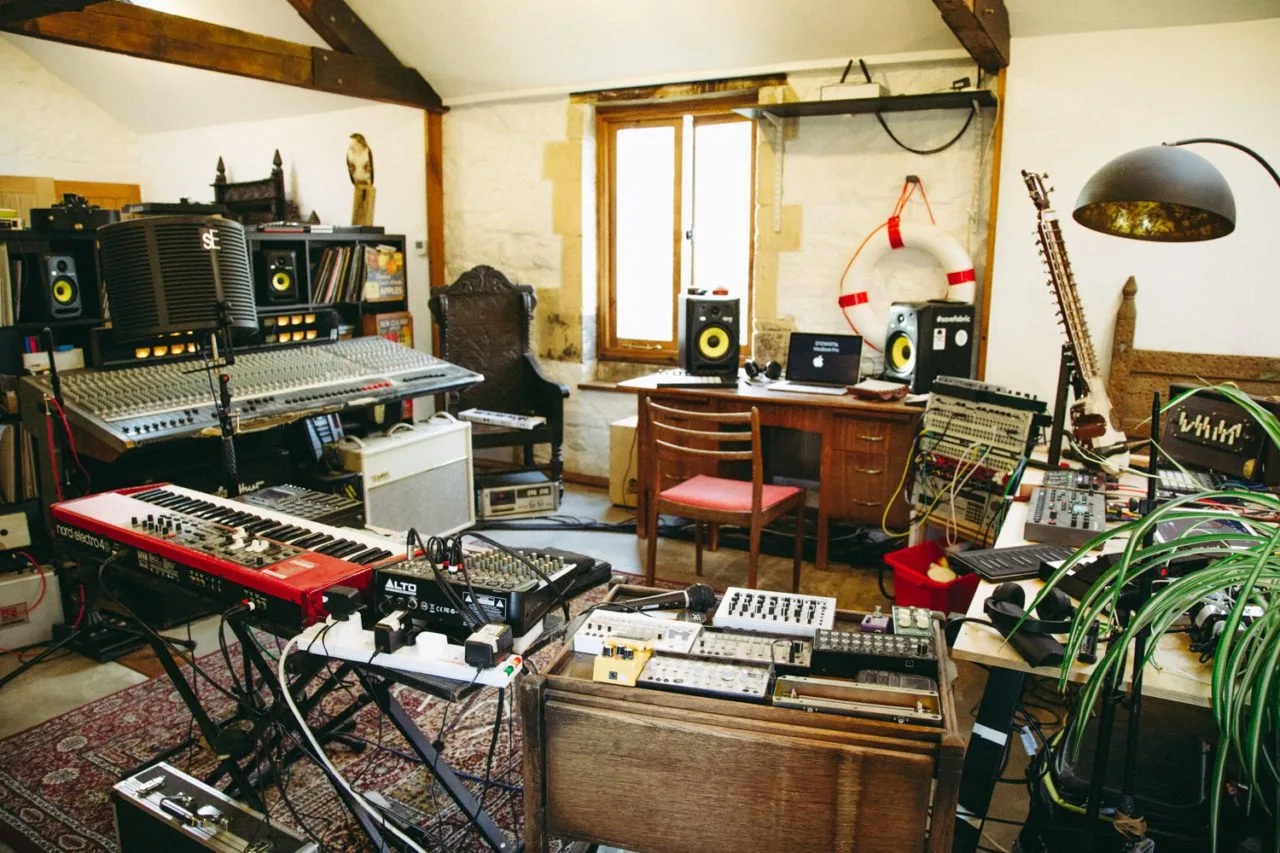We live in an age of productivity. An era in which deadlines are a measure of efficiency and pandemics are sold as an opportunity to ‘get things done’. In the midst of uncertainty sponsored by the lockdown, left with an entire day to plan and nowhere to escape to, the perception of time has taken an all pervasive fluidity that has begun to reveal the true nature of productivity. Deadlines that seek to ‘finish tasks’ have started to lose significance. In the absence of arbitrary constructs like deadlines, artists have been able to drop social concerns and let the art flow.
History is witness to the monumental art produced in the face of pandemics. When the first ever documented plague hit the city of Athens between 429 and 426BC, it led to the conceptualization of legendary Greek tragedies, most notably Oedipus, that inspired both Rome and Renaissance in the coming years. Another plague, the Black Death in the 14th century in Italy, led to an artistic and intellectual revolution that shook the world of art from its root, redistributing (to some extent) power from church to state.
When the plague was rampant in Italy, doctors believed that just the thought of plague could make one sick. It was also during this time that an Italian physician, Niccolo Massa, prescribed music therapy for the first time ever to prevent getting sick. Closer to memory, is the story of New Orleans in the 1800s. It was a thriving port of entry into the ‘New World’, but also one of the most unhygenic and unhealthy places to live in. On average, one could hope to live to 36 before he was taken by cholera, yellow fever, typhus or influenza. Yet in spite of this, New Orleans was the birthplace of ragtime, which later evolved into jazz, the most important music genre of the first half of the 20th century.
I will not get into the details of how each artform flourished, but lo and behold we’re in the throes of another pandemic. In the absence of live gigs and networking, artists have retreated to their studios and are faced with the challenge of showcasing their art to the world through the internet. One such initiative has been the #CovidWars on SoundCloud, a small movement started in the UK between dubstep producers, which has seen enthusiastic participation from India. Artists have released 1 to 2 minute productions, done in short periods of time. From leftfield bass to experimental psy, each artist has taken the liberty to explore the sound that is uniquely theirs and encouraged 3 others to do so.
#CovidWars has revealed the camaraderie of the artist community and its role in lowering the inhibitions that otherwise hold them back from going public. On being asked about the hurdles of releasing her in progress work to the public, Zequenx, an electronic music producer and performer, points the finger at doubting her production in whether they are ready or not for people’s ears, being works in progress as they are. Flux.vortex, a dub/experimental producer, mirrors this feeling, adding that he blames his obsessive nature. On talking about holding back, he says that “it stems from a place of control, where I often feel like I need to create a polished product to put out, to stand out from the huge amount of music that is being released everyday.”
Through initiatives like Covid Wars, “artists are able to showcase their WIP tracks which helps them gain perspective and get constructive criticism on their sound”, Zequenx points out. Along similar lines, Flux.vortex says that it helps “give people an insight into your process, presenting a more vulnerable side to you. You never know how someone may end up relating with a piece of music you have abandoned or don’t feel too connected to.” It is also an effective way to get the audience excited about your upcoming music, as Stain, a bass music producer, points out.
It is not just mental blocks, but the time being a finite quantity that gets artists as well. Artists in the independent Indian music industry often play multiple roles. From juggling day and night jobs to managing different aspects of their work within different social circles. When asked about the biggest hurdle he faces in the absence of a lockdown, Stain shares his experience with juggling his time. He has learnt how to promote himself, get artworks done and get bookings where he can showcase his music on sound systems that he has composed them for. With the lockdown, he has been able to step away from the paraphernalia and focus on creating music.
Flux.vortex says “Staying at home during lockdown has given producers and artists the time and headspace to make a lot of music, as well as the perspective that it’s better to share your creation with people, rather than to let it rot on a hard disk!” Zequenx echoes the sentiment and adds that “seeing contemporaries showcase their music helps in overcoming the boundaries that hold back artists. It feels like a community coming together to help each other grow.”
It is not only WIP tracks but complete albums that have been speed tracked and released during the lockdown as well. Stain has taken this time away from the crowd to reflect on his sound. In the absence of peer pressure he has been able to narrow down the sound he wants for his music. He has been able to translate his sound into a few EPs and plans to release an LP in the coming year.

We live in an era when technology has democratised music production reducing the equipment to a computer and an internet connection. In response to the pandemic, many music production companies and synth makers have stepped up to make available free, sophisticated digital equipment that can serve as tools to enhance your creativity. Flux.vortex believes that the actual democratization of music began long ago, “when computers became household items”.
Live streaming and social media challenges are a great way to keep the community strong in tough times, both flux.vortex and Stain point out. With the cancellation of live gigs and performances, and people in dire need of entertainment, these have served as good replacements. Optimistic person that I am, I’d like to believe that efforts like these would go a long way in changing the status quo. However, while technology has democratised the production of music, it is yet to revolutionize its distribution. Flux.vortex says that “While a lot of music is being created, there doesn’t exist an adequate framework for this music to be put out, the democratization of creation hasn’t led to a culture of ingenuity and experimentation. A soundcloud upload often drowns in the noise of endless releases, that often aim to be a copy of a copy, to fit the narrow demands of playlist culture. With the lack of music sales, the only approval of an artist’s music is reduced to streams and plays.”
Stain also points out that the onus of getting one’s music out there lies with the artists. He points out that as an artist you have to be motivated enough to socialize and send out tunes with briefs to the right people, to ensure that the music is discovered by a larger audience. He believes this to be the starting point of change for entry into the music world.
Zequenx has wise words for herself and artists saying that if you push towards your own goal, whatever that might be, then the status quo would not matter, because you’re making music for the sake of music. In the midst of the pandemic, and otherwise, she appreciates having put her music out there and received valuable feedback from fellow artists which has helped her further work on her music.
The large scale impact of Covid 19 on the music industry will only be apparent a considerable passage of time. But in the midst of this pandemic, the live music scene in general and specifically the alternative music scene in India is changing rapidly with artists surrendering to their music completely. The alternative Indian music industry is in a particularly nascent stage when compared to many countries across the world but the fact that artists from India found it in themselves to wholeheartedly take on a global call of #CovidWars is commendable and fills my heart with the hope that music is slowly being taken over by musicians, as it should be.





























